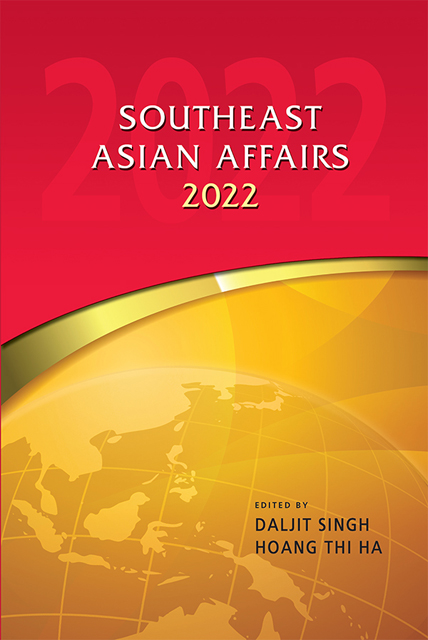Singapore in 2021: Navigating through Domestic and Global Crises
Published online by Cambridge University Press: 01 September 2023
Summary
Economy Rebounded
The year started on an optimistic note. The inauguration of Joe Biden to be the forty-sixth President of the United States of America in January brought some predictability to US foreign policy in the Asia Pacific region. The arrival of COVID-19 vaccines augmented the economic buoyancy as movement restrictions were gradually lifted, which gave a boost to the business sectors. Manufacturing and exports rebounded strongly, and Singapore’s recovery seemed well on track albeit below expectations. By the end of Q1 2021, small and mediumsize enterprises (SMEs) were looking beyond survival to explore emerging opportunities. Construction and built environment sectors were expected to grow between some S$23 billion and S$28 billion in 2021, up from S$21.3 billion in the year before. Economic growth was led by the digital revolution in information and communications and by sectors immune to COVID-19 disruptions like finance, insurance and professional services. In all, Singapore’s GDP grew by 5.9 per cent in the fourth quarter, resulting in an overall annual growth of 7.2 per cent in 2021.
Still, notwithstanding the improvement in business sentiment, Singapore’s economy was not out of the woods. For two years in a row, the city-state relied on its past savings to fund its pandemic measures, drawing S$1.7 billion from its fiscal reserves and setting aside over $9 billion in 2020 to fund the “COVID-19 Resilience Package” to support local businesses, according to the 2021 annual budget debate in Parliament. The air transport sector, one of the badly affected industries, received financial relief of S$870 million, a lifeline to maintain Singapore’s status as a regional transportation hub. The International Air Transport Association estimated that Singapore’s aviation sector provided 375,000 jobs before the pandemic. If tourism were considered, the spending would support another 152,000 jobs.
The financial assistance did not end there. Singapore entered a “heightened alert” phase in mid-May 2021 when the number of community cases rose exponentially. On 5 July 2021, Finance Minister Lawrence Wong announced in Parliament that an additional S$1.2 billion support package would be handed out to help SMEs pull through the difficult period. These included the Jobs Support Scheme that subsidizes the salaries of Singaporeans and other forms of tax rebates and special loans.
- Type
- Chapter
- Information
- Southeast Asian Affairs 2022 , pp. 309 - 323Publisher: ISEAS–Yusof Ishak InstituteFirst published in: 2023



